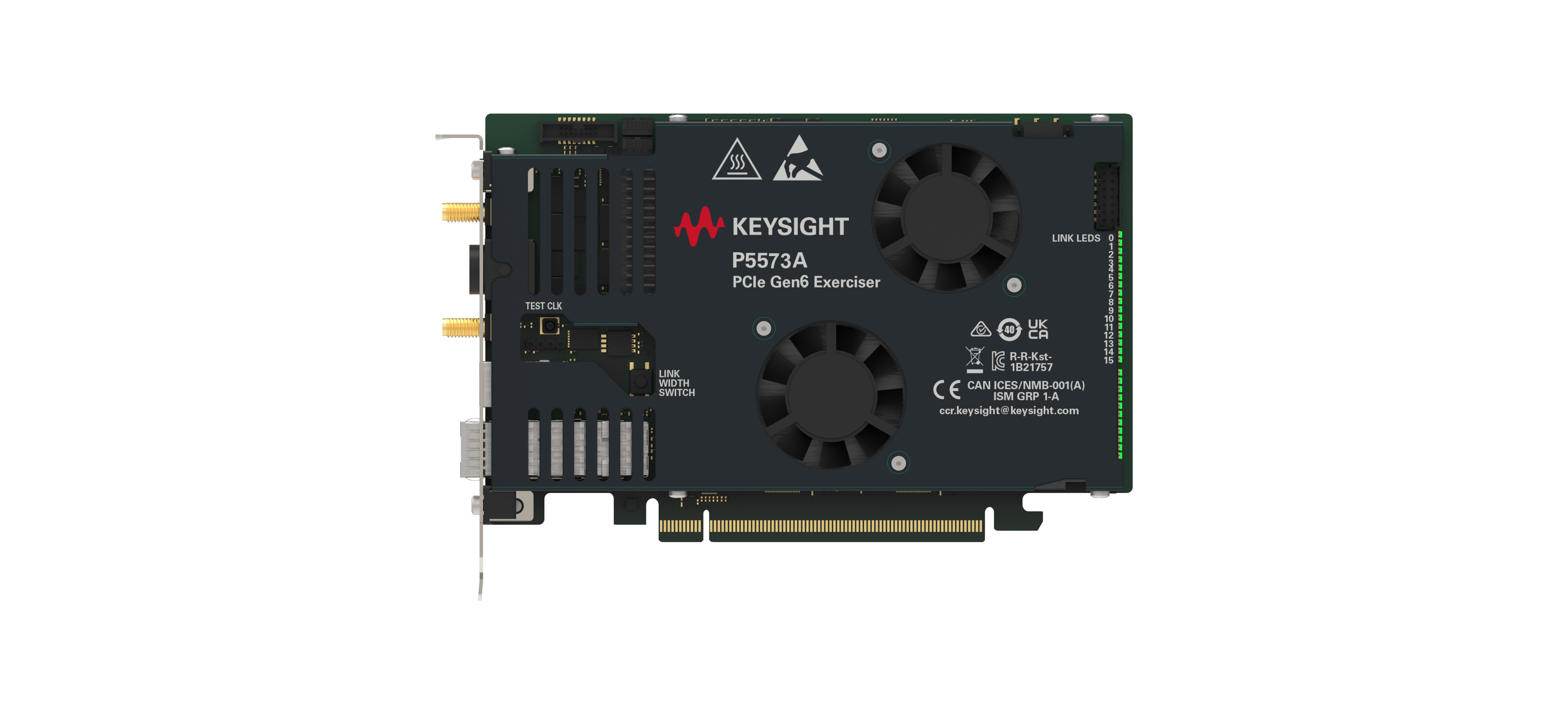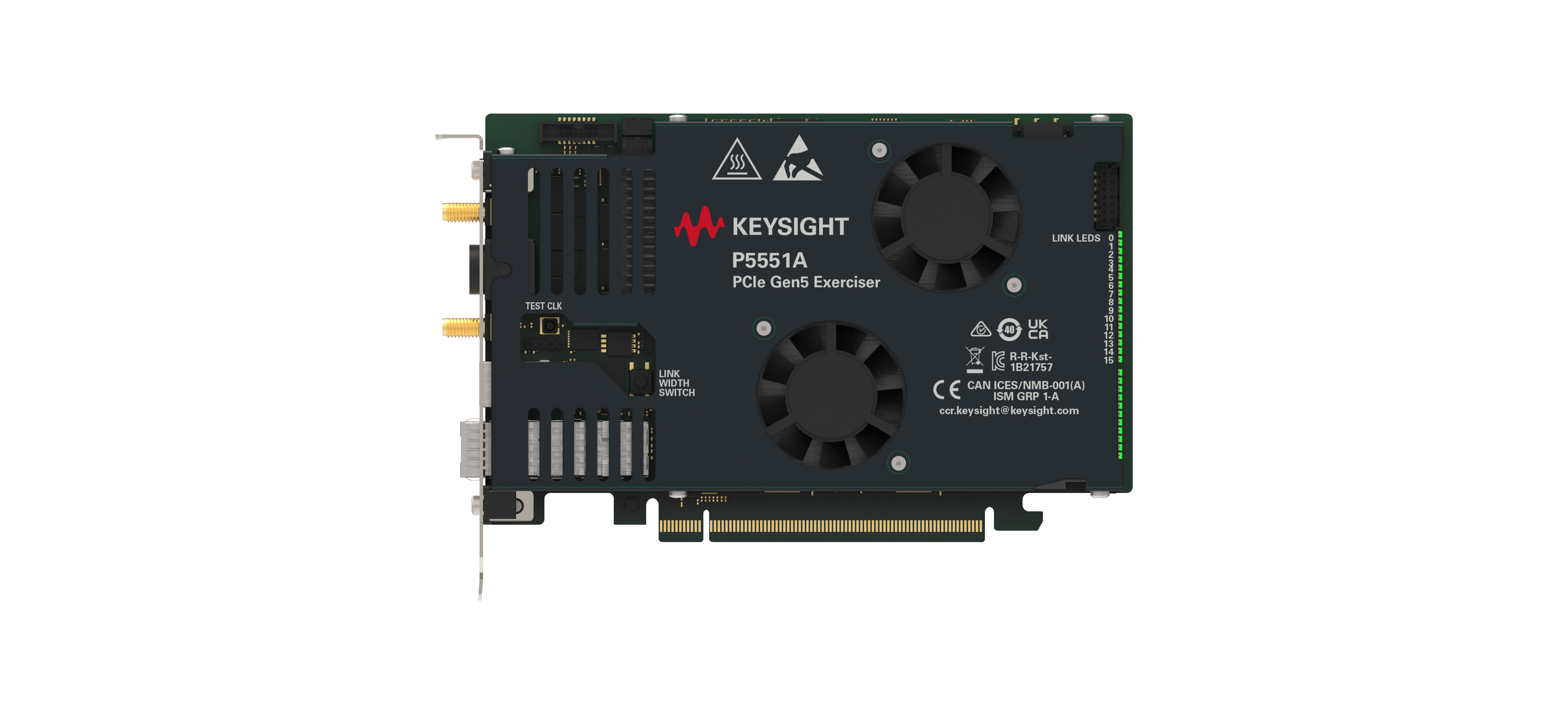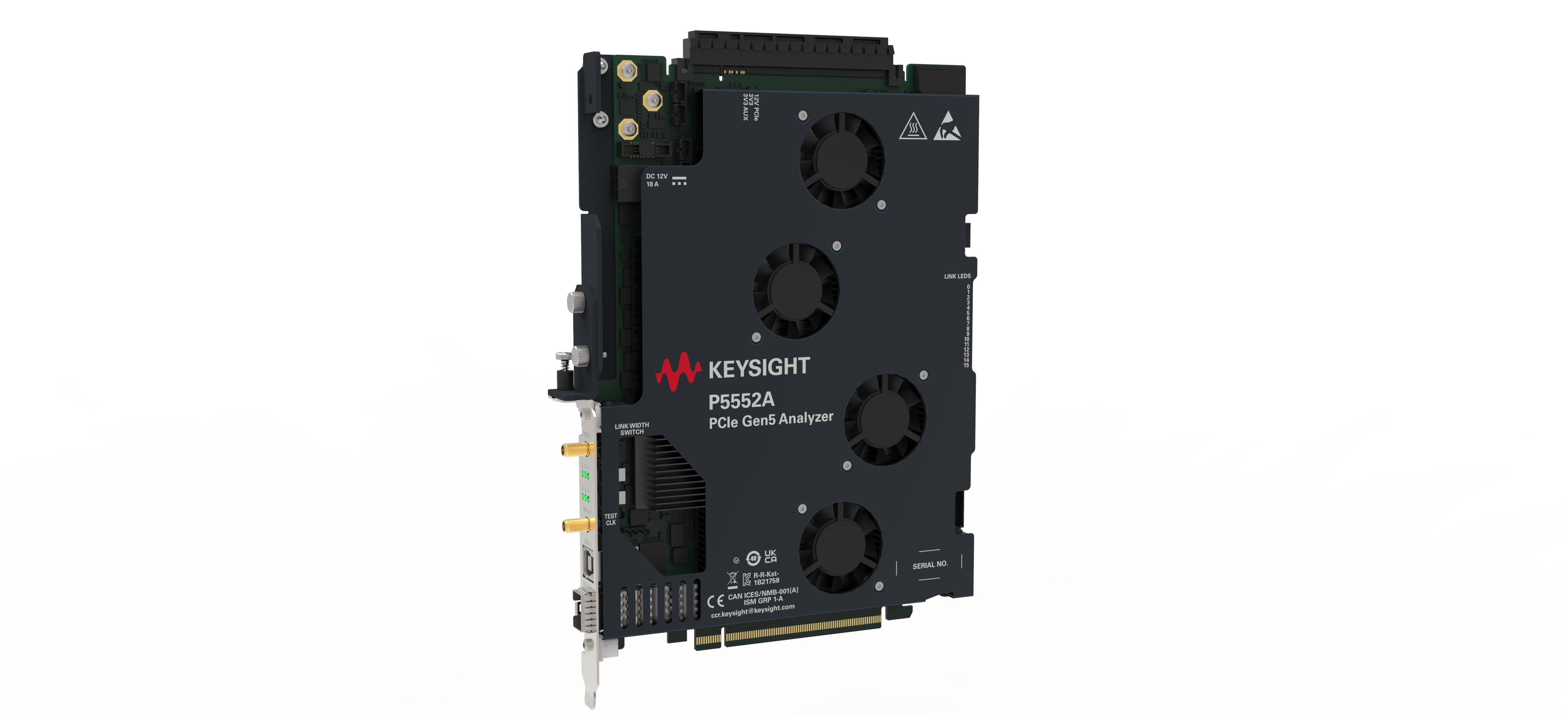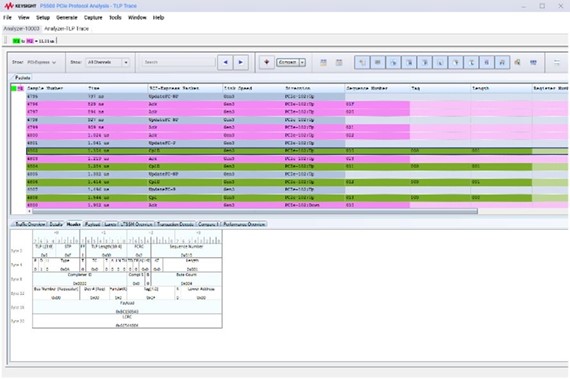What are you looking for?
Protocol Analyzers and Exercisers
Deep insight at higher speeds with protocol test solutions

Effective Protocol Test Solutions to Debug, Validate, and Optimize
Keysight protocol analyzers and exercisers offer an advanced verification system that allows you to capture the data traffic generated by various protocols, such as PCI Express (PCIe), Compute Express Link (CXL), Advanced Switching Interconnect (ASI), and Fibre Channel (FC).
If your design includes multi-gigabit serial interconnect standards, Keysight protocol analyzer and exerciser products are the most effective solution to debug, validate and optimize semiconductors, software, and systems that use serial protocol standards for data centers, computers, storage, display, mobile, and embedded systems.
The protocol test solutions also enable you to view and analyze the captured data to identify problems, find their root cause, and troubleshoot them. This makes protocol analyzers a very effective tool to control as well as speed the development and testing of the PCIe, CXL, ASI, and FC protocols.
Find the Protocol Analyzer or Exerciser that's Right for You
Related Use Cases
Featured Resources
Extend the Capabilities of Your Protocol Analyzer or Exerciser
Frequently Asked Questions - Protocol Analyzers
A protocol analyzer is a tool for capturing, decoding, and analyzing data traffic between devices in a network or system. It provides detailed insights into the data exchange at various protocol layers, helping to identify and troubleshoot communication issues.
Developers and test engineers can analyze protocol performance on any instrument that captures and displays digital signals. Mixed-signal oscilloscopes and logic analyzers can display protocol performance for debugging and validation purposes with software to trigger on and decode specific data protocols. However, specialty protocol analyzers and exercisers allow for quicker, deeper analysis of protocol performance and more robust device and system validation.
A protocol analyzer is crucial for validating system performance with high-speed digital signals as it enables deep protocol analysis. This ensures that devices comply with specifications and standards at the protocol layer and achieve physical layer compliance. It also helps identify protocol errors, validate device operations, and ensure reliable data transfer.
Protocol analysis requires observing traffic between two devices (a root complex, or host, and an endpoint) and ensuring that they are communicating correctly. Protocol exercisers can emulate the behavior of both PCIe root complex and endpoint devices to communicate with the device under test. They work alongside the protocol analyzer to enable the test engineer to observe the communication between the devices. The exerciser generates traffic, emulating real-world behavior and enabling robust system testing and debugging.
Signal integrity issues can cause protocol analyzers to misinterpret data signals. A quality protocol analyzer minimizes its impact on the channel between the host and the device under test using equalization and amplification to maintain signal quality. Cables can complicate and even degrade signal integrity, requiring lengthy link-up procedures. Modular protocol analyzers solve this with plug-and-play functionality and direct connections between the device and the analyzer or exerciser.
Automation software enhances protocol analysis by enabling quick, repeatable testing and debugging. It provides control and visual analysis tools, helping developers create robust test cases and efficiently identify and resolve protocol issues.
Want help or have questions?















.png)

